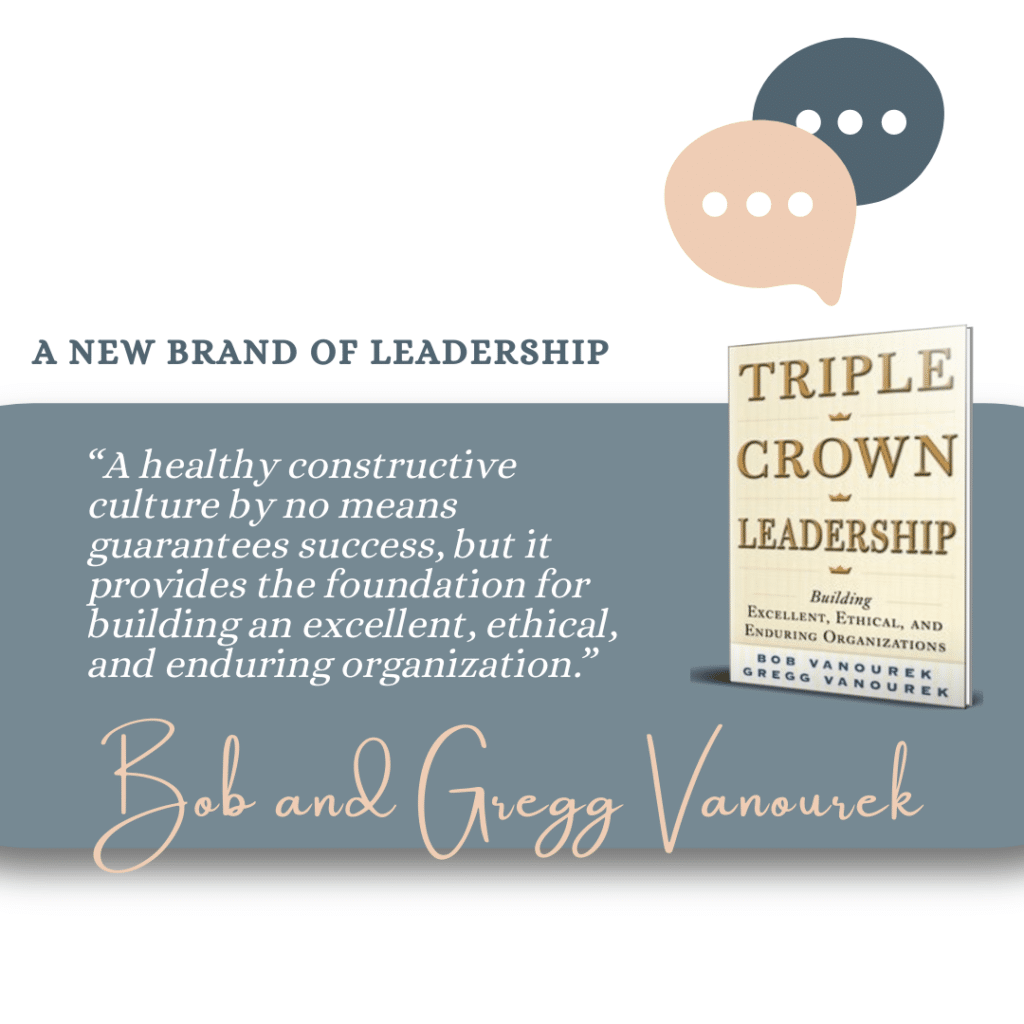“Culture isn’t just one aspect of the game—it is the game.”
–Lou Gerstner, former CEO of IBM
How can your organization gain a sustainable competitive advantage?
- Technological breakthrough?
- Killer patents?
- Brilliant strategy?
- Protected regulatory position?
We suggest another, perhaps even more powerful, way:
Create a high-performance culture of character.
Create a culture intent on building an excellent, ethical, and enduring organization, much like the mythical Knights of King Arthur’s Round Table enjoyed.
Technologies become obsolete; patents expire; regulations will change.

Leadership Derailers Assessment
Take this assessment to identify what’s inhibiting your leadership effectiveness. It will help you develop self-awareness and identify ways to improve your leadership.
A High-Performance Culture of Character
We think of organizational culture as “how we do things here”—how people behave. Culture forms over time and drives what happens when the authorities are not present. It sets the tone for the organization, and the norms for what is acceptable behavior from people in the group. Culture is a powerful force in determining how an organization operates.
Organizations with a toxic culture pay a heavy price in lost revenue, damaged reputation, lawsuits, and more. Greed, conflict, gamesmanship, mistrust, backstabbing, and exploitation spawn toxic cultures.
Organizations with a nondescript, non-defined, haphazard culture (sound familiar?) do nothing to build sustainable competitive advantage.
By contrast, organizations with a high-performance culture of character—think of Southwest Airlines, Zappos, Patagonia, and DreamWorks—set in motion a self-reinforcing, positive, and virtuous cycle with their stakeholders. Employees identify more with the enterprise and bring more of their talents and efforts to their work. They unleash their creativity, commitment, and talent. This healthy culture positively affects growth, productivity, staff retention, relationships with customers and suppliers, profitability, and more.
Researchers have found a “strong relationship between constructive organizational cultures and financial performance.” According to a 2011 McKinsey report,
“Culture matters, enormously. Studies have shown again and again that there may be no more critical source of business success or failure than a company’s culture.”
AuthorJames Heskett estimates an effective culture can account for 20 to 30 percent of the difference in performance versus “culturally unremarkable” competitors.
A healthy, constructive culture by no means guarantees success, but it provides the energy boost and deep-seated commitment to build an excellent, ethical, and enduring organization. In a high-performance culture of character, everybody expects excellent, ethical, and enduring performance and impact.
Culture is the legacy of leadership.
A high-performance culture of character is the legacy of triple crown leadership.

Core Concept
One of the most important ways an organization can create a sustainable competitive advantage is to build, protect, and maintain a high-performance culture of character.
Tools for You
- Leadership Derailers Assessment to help you identify what’s inhibiting your leadership effectiveness
- Personal Values Exercise to help you determine and clarify what’s most important to you
- Alignment Scorecard to help you assess your organization’s level of alignment

Triple Crown Leadership Newsletter
Join our community. Sign up now and get our monthly inspirations (new articles, announcements, opportunities, resources, and more). Welcome!
+++++++++++++++++++++++
Gregg Vanourek and Bob Vanourek are leadership practitioners, teachers, and award-winning authors (and son and father). They are co-authors of Triple Crown Leadership: Building Excellent, Ethical, and Enduring Organizations, a winner of the International Book Awards. Check out their Leadership Derailers Assessment or get their monthly newsletter. If you found value in this, please forward it to a friend. Every little bit helps!


